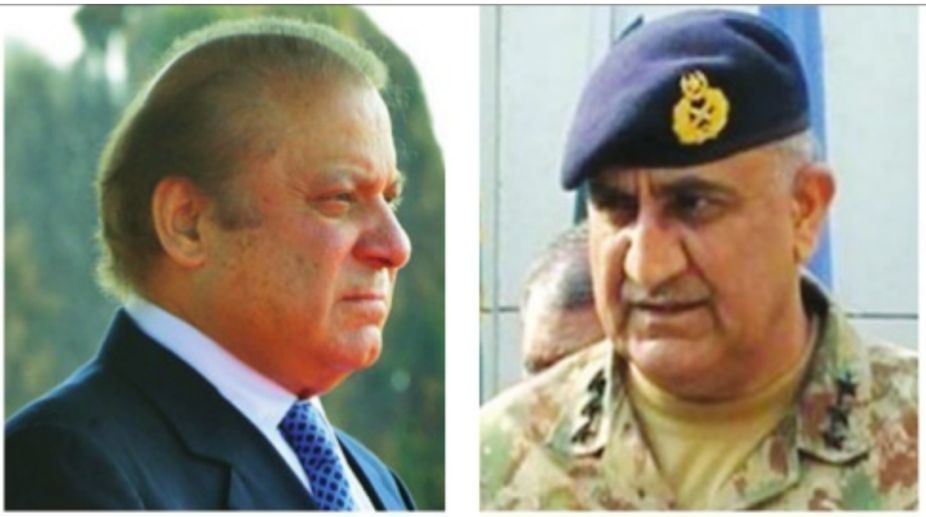One bug which has bitten both India and Pakistan and now Bangladesh is espionage. Anyone who visits from the neighbouring country is considered a spy until proven otherwise. It really depends on the External and Home ministries whether a particular person will be let off. But it is the police force that is an arbiter. And it goes without saying that the sentence awarded to the person would be life time imprisonment or death.
Normally, the court decides the sentence. However, the case in Pakistan is different because it is ruled by the military. Still the Civil Courts have their role depending upon local military commanders. They in fact have the last word. Even the death sentence is awarded by them. The question of evidence arises but it again depends on local military commanders.
Dawn from Karachi has reported how Jadhav, an Indian businessman, was sentenced to death. “Indian RAW Agent/Naval officer 41558Z Commander Kulbhushan Sudhir Jadhav alias Hussein Mubarak Patel was arrested on March 3, 2016 through a Counter Intelligence Operation from Mashkel, Balochistan, for his involvement in espionage and sabotage activities against Pakistan. The spy has been tried through Field General Court Martial (FGCM) under Pakistan Army Act (PAA) and awarded death sentence,” the military’s public affairs wing, ISPR, announced on Monday.
Sartaj Aziz, Advisor on Foreign Affairs to Prime Minister Nawaz Sharif has admitted that there was little evidence to convict but other things, he says, add up to prove Jadhav’s involvement in espionage. In any case, Sartaj Aziz’s words are adequate. Pakistan has submitted the relevant papers to the Secretary General of the UN. It believes that the verdict, if he at all delivers one, would be in favour of Islamabad.
Indeed, it is hell for a person who visits a neighbouring country. He or she is pursued by the Intelligence department wherever he goes. Even a shopkeeper is questioned as if he is party to the buyer’s selection of the shop. Markets want buyers from a neighbouring country because they spend a lot of money. But the questioning by the police deters them. I recall that once a Pakistani who picked me up from the airport was upset by the police car that followed us. He stopped his car and asked his pursuer why he was following him. In reply, the man said that he was not to blame. He was doing what his superior had asked him to do. My friend, who was a leading editor, knew the military superiors. The result was that the car pursuing us increased the distance but it did not give up following us.
Assume that Jadhav was a spy of sorts but what could he have spied. Technology has advanced so much that with a satellite you can read from the air even the digits painted on a car number plate. Therefore, Jadhav’s guilt would be considered Pakistan’s revenge for some other deed.
The Pakistan announcement did not say when the trial would commence and how long it would continue before the verdict was handed down. In the case of Jadhav, the announcement mentioned that the sentencing had been ratified by Chief of the Army Staff Gen Qamar Javed Bajwa. It has not been spelled out why and on what ground.
Since Pakistan has denied even consular access after as many as 14 requests, it is difficult to know the reason for death sentence to Jadhav. Foreign Minister Sushma Swaraj has warned that if the sentence to Jadhav is carried out, it would be an unfriendly act. The recent surgical strike should be a warning. New Delhi can go to any extent.
Both India and Pakistan should sit across the table and decide matters between them once for all. Kashmir may be separated from other problems and discussed separately. There is no reason why the two countries cannot do business or set up joint ventures. In fact, goodwill would be generated if they could only ease the visa facilities for tourists to begin with. Unofficial trade which is going on at the borders can be allowed to increase. Official trade would bring in all kind of problems because both countries have a long list of grievances against each other.
Prime Minister Nawaz Sharif said recently that there was no reason why India and Pakistan could not live as friendly countries. The fact of partition is seventy years old and the wounds inflicted by both sides is a painful story. One million people were killed in the forced migration, the biggest in the world. Thirty to forty million people had to find new homes because they did not feel safe at their places after partition.
Jadhav is not the last person to face death sentence by military tribunal which sets a new precedent, of trial of civilians by a military court. Apparently, political parties are not happy and they have tried to abolish military courts. The matter came up before the Pakistan National Assembly only a few days ago. There was fierce opposition from democratic and liberal parties. But unfortunately the military had the last word and tribunals have come to acquire a legal sanction.
Since Pakistan has a large say in SAARC it may be prudent for other countries in the region to discuss some kind of common market and ways to establish even unofficial methods for trade and business. At present business through Dubai is large but expensive. Agreed that Kashmir is a running sore, but some ways should be found other than pelting stones to sort out the problem. Too much emphasis on the Islamic aspect is encouraging only the communal parties and postponing the solution.
Jadhav’s sentence has become another problem between the two countries. The efforts should be on how to lessen such instances of sentences-at-will. There are not conducive to peace in the region.
The writer is a noted journalist columnist and commentator.












